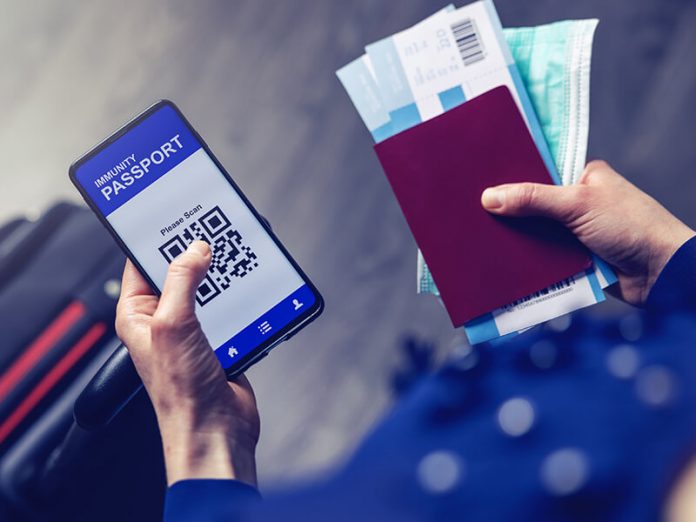After news of two approved coronavirus vaccines broke in late 2020, many were hopeful that the pandemic would soon be over.
While countries around the world are currently trying to roll out vaccination programs as soon as possible, the idea of ‘vaccine passports’ are already making headlines. Could vaccine passports — as well as updated vaccine health requirements in the EU — be the answer to boosting travel and tourism in the meantime?
History of the Coronavirus Vaccine in the EU
After months of research, testing, and clinical studies, the COVID-19 vaccination campaign officially started in late December of 2020 in the European Union. Under the program, each of the EU member states will receive their share of the 2.3 billion total doses that have been secured to date.
The vaccines will come from different pharmaceutical companies, including but not limited to AstraZeneca, BioNTech/Pfizer, Johnson & Johnson, and Moderna, among others. Although each country has its own regulations and procedures regarding the vaccine, the majority of EU member states are planning to vaccine at-risk citizens first. This includes the elderly, healthcare employees, frontline workers, and those with underlying medical conditions.
What is a Vaccination Passport?
With the advent of the COVID-19 vaccine, the idea of a vaccination passport is making headlines. A ‘vaccination passport’ will be a digital passport that proves citizens have been vaccinated against the coronavirus. Although details are still being worked out, experts believe that vaccination passports will be a fundamental tool to ensure seamless border crossings while saving significant time.
Nick Careen, Senior Vice President for Airport Passenger Cargo and Security at IATA, notes, “It’s about trying to digitize a process that happens now and make it into something that allows for more harmony and ease, making it easier for people to travel between countries without having to pull out different papers for different countries and different documents at different checkpoints.”
The vaccination passport is not a new concept: the World Health Organization (WHO) first established the idea of medical passports in the 1930s. The most well-known example are the “yellow cards,” borrowing their name for the yellow fever vaccination required to travel to regions with high rates of the virus. Nowadays, certain educational institutions around the world require an immunization document before a child is able to enroll in school.
When Will the Vaccination Passport Be Released?
Although each member of the European Union has its own timeline, vaccination passports can become a possibility in the very near future.
For example, Iceland became the first EU country to provide COVID-19 vaccination certificates this past month, with many other countries on their way. Denmark, Sweden, Spain, Portugal, Greece, Poland, and Cyprus have all expressed interest in vaccination passports one way or another, either as a physical document or a digital version.
With big-name companies like Microsoft, Oracle, Salesforce, and Cerner onboard, digital vaccination passports may soon become a reality.
Who Will Require Vaccination Passports?
From airlines to hotels, event venues, and cruise liners, various sectors of the tourism industry have expressed their support for a vaccination passport.
Airlines have been getting on board with trials: Companies like Emirates, Qantas, and Qatar Airways are currently in the process of trialing the IATA Travel Pass, a mobile application designed to help passengers manage their health information and show proof of immunization or test results. Cathay Pacific began a project in October 2020 in the form of a QR code that holds the passenger’s COVID-19 testing and/or vaccination data.
Some countries are already experimenting with the concept of vaccination passports. Israel, one of the frontrunners in the vaccination race, has started issuing vaccine documents known as “green passports.” Available on a digital app or as a printed document, the green passport gives its holder access to gyms, hotels, leisure centers, and seaside resorts. At the moment, citizens who have been given both doses of the COVID-19 vaccine (or those who have recovered from the virus) are eligible to receive their ‘passport.’
Issues Facing Vaccination Passports
Of course, the vaccination passport is not without its fair share of issues. Critics argue that the introduction of a vaccination passport will lead to a slew of problems with data encryption, privacy protection, and cross-platform technological challenges. Another major issue is the threat of discrimination, especially given the fact that the coronavirus vaccine rollout is based on a priority system. Some people will be vaccinated before others, and therefore be given preference over those who have not had the vaccine.
Although these challenges are currently in the works, for intrepid travelers, vaccination passports may offer a glimmer of light at the end of the tunnel.



































